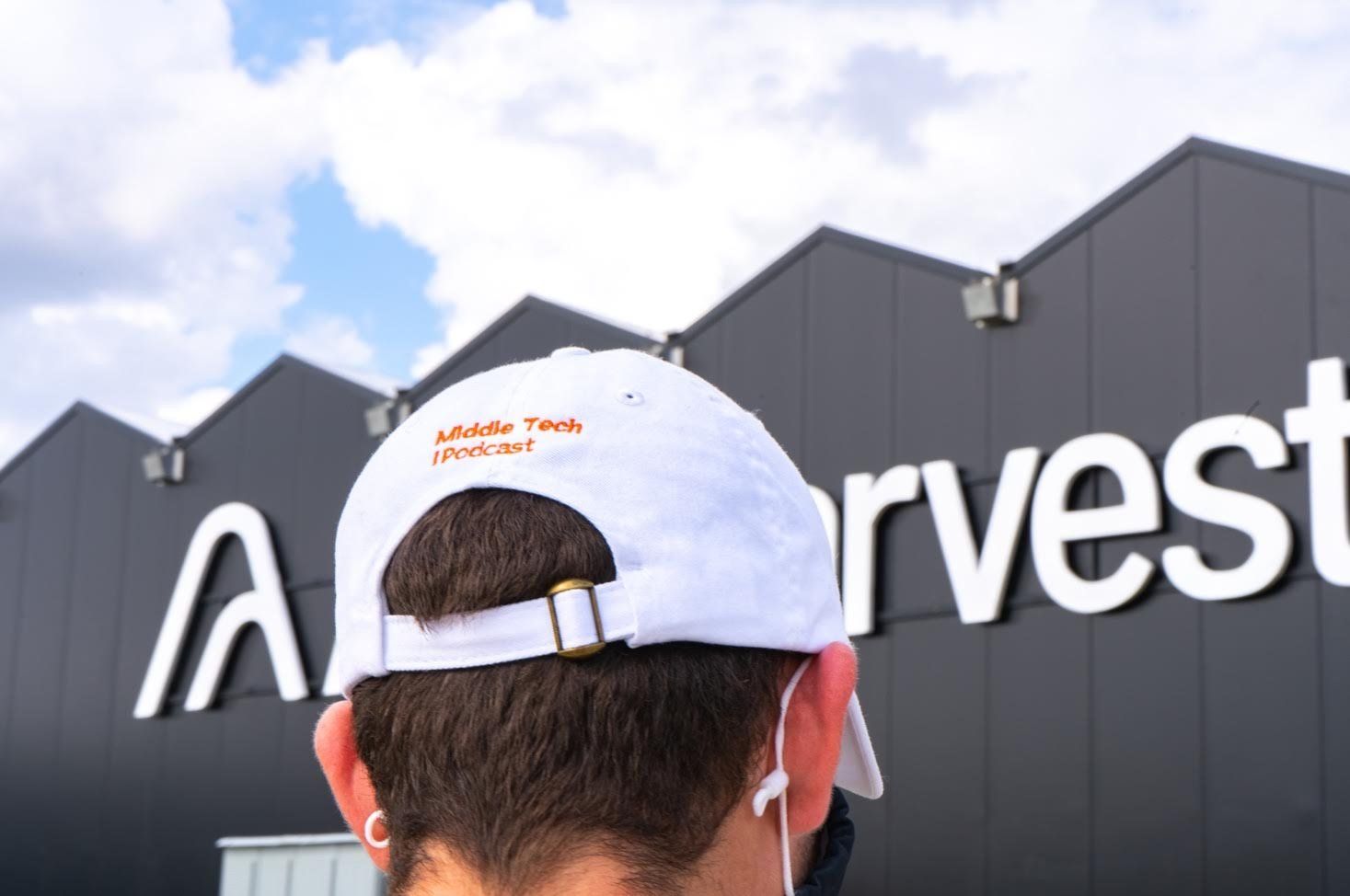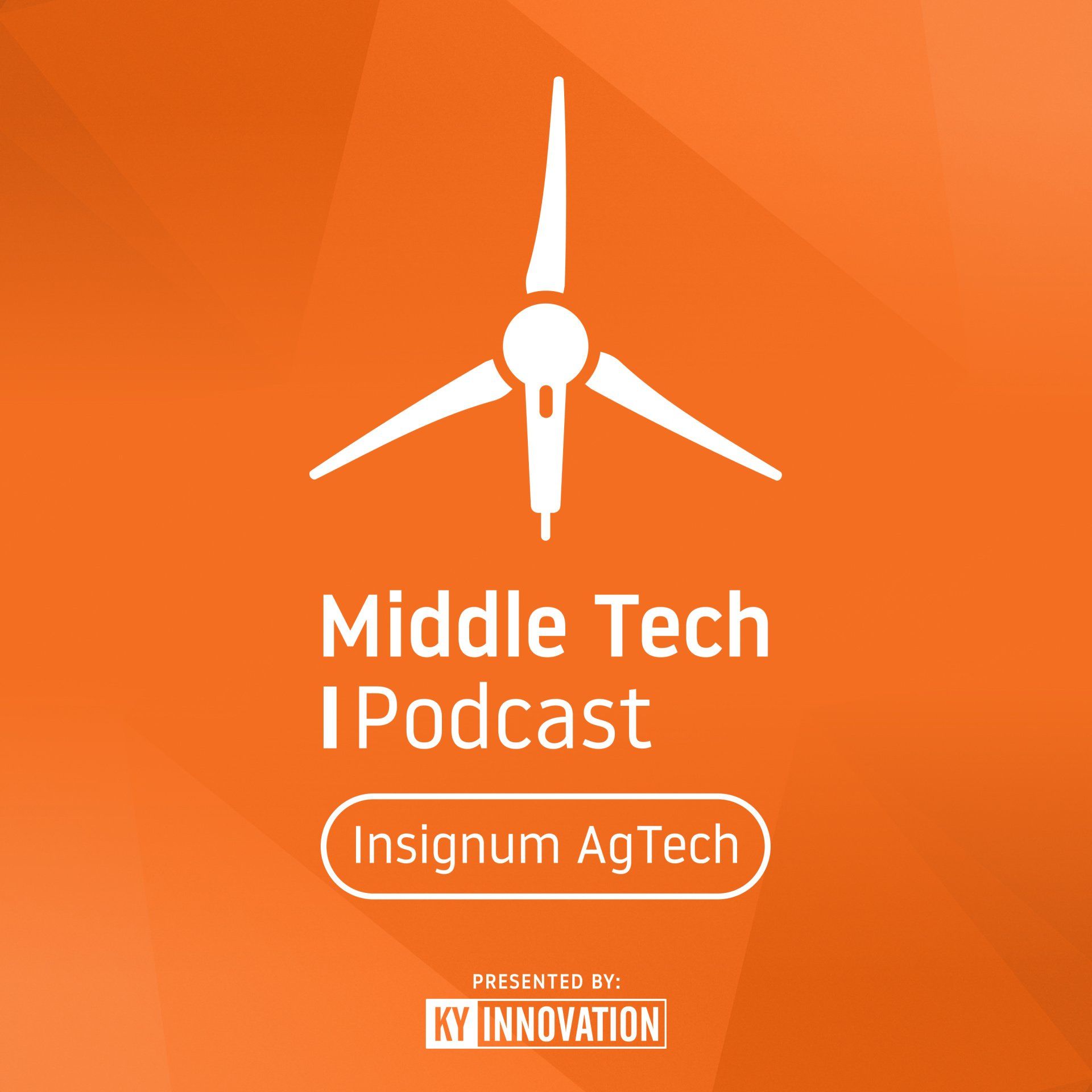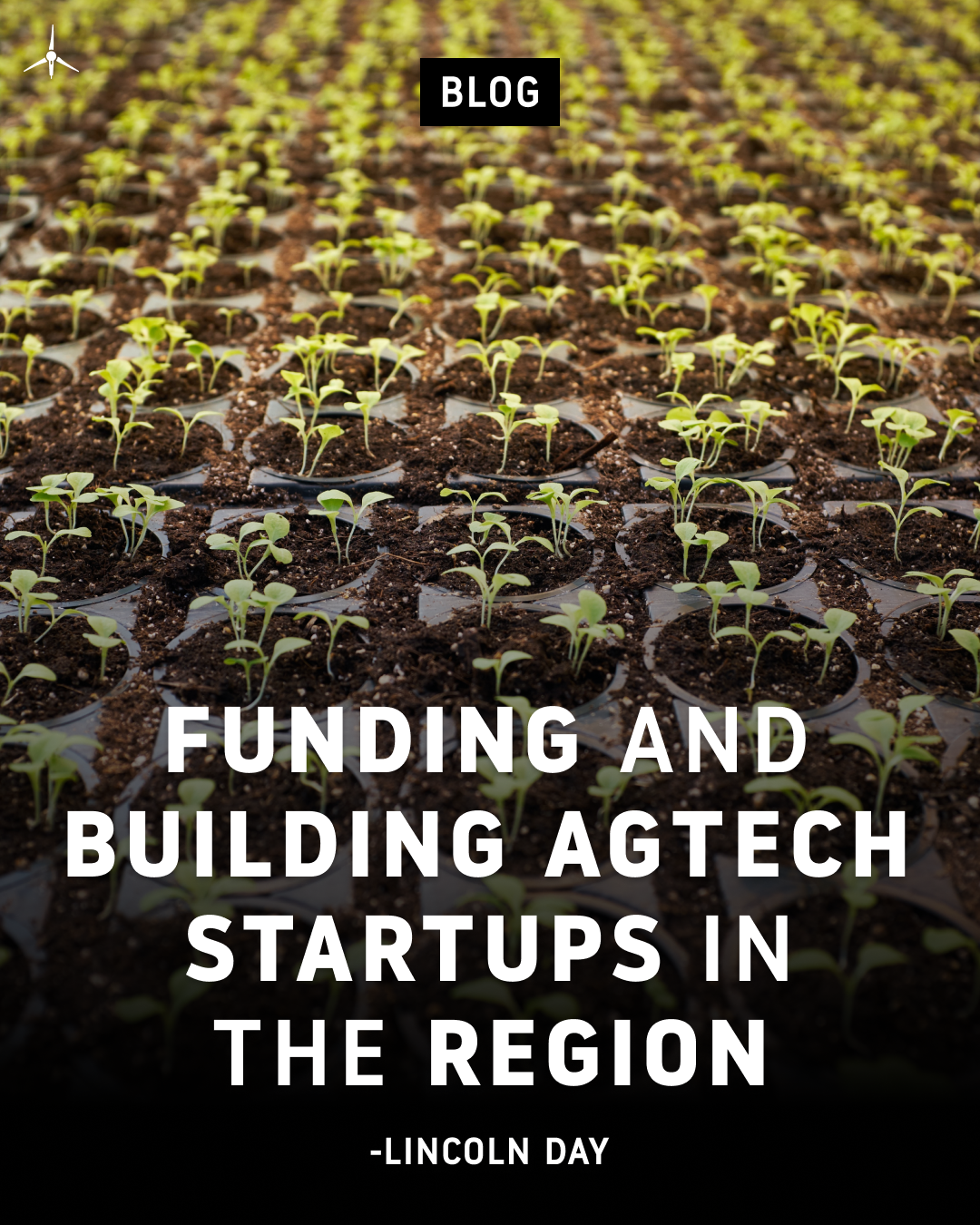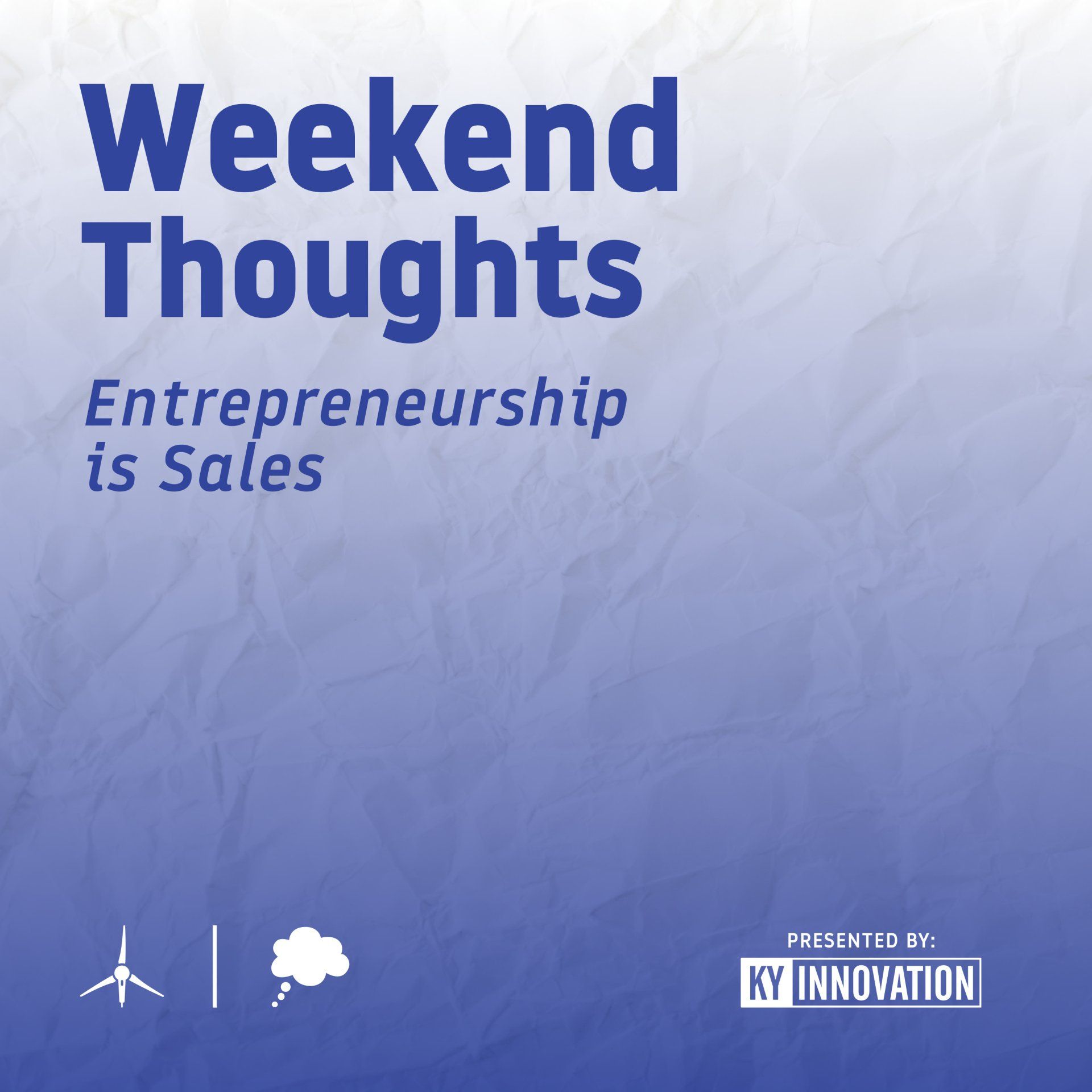Geof Rochester of AppHarvest: Marketing the Next Wave of Agriculture
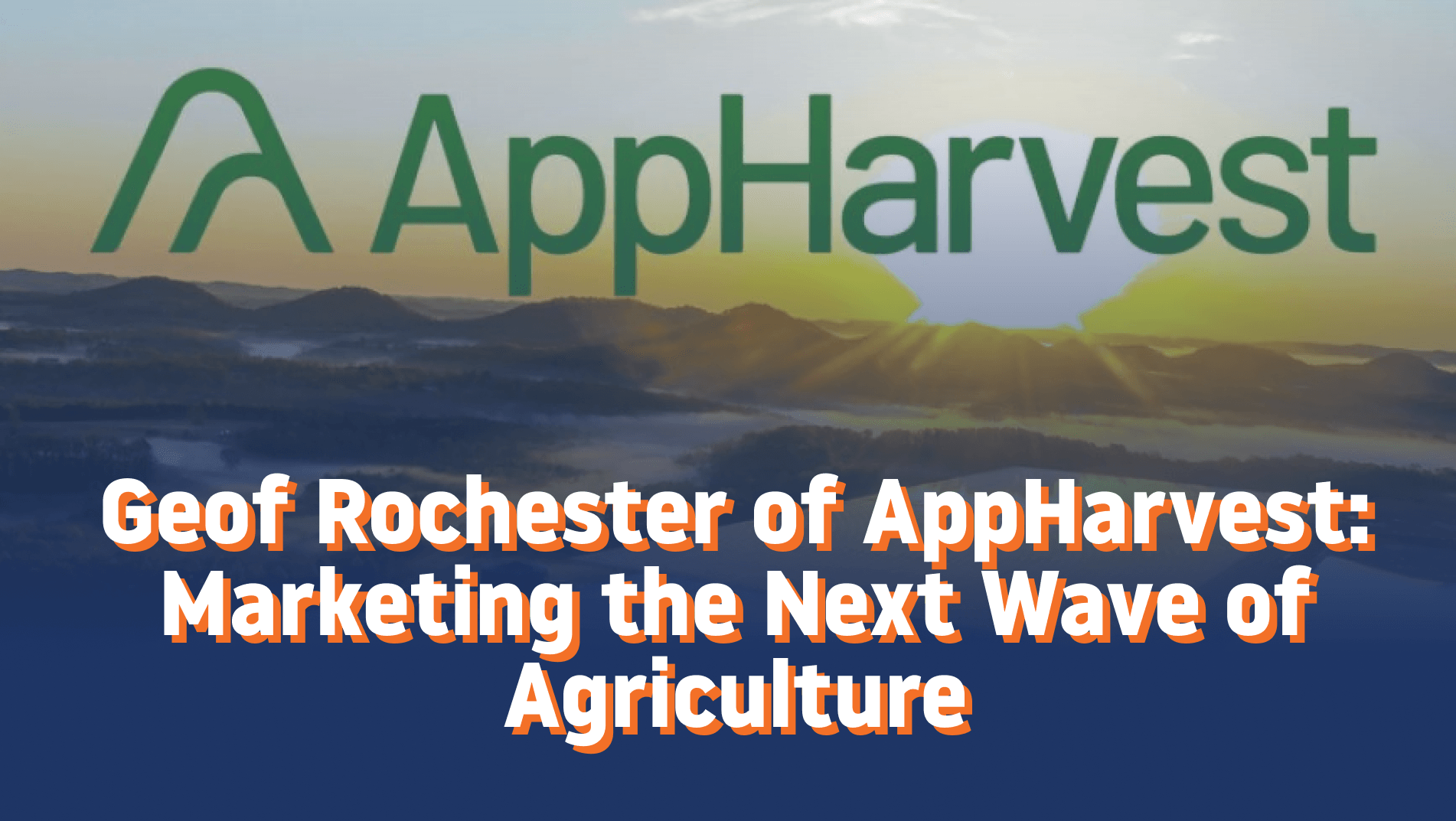
There are record-setting wildfires raging across California, Oregon, and Washington. Deadly derechos are destroying farms, homes, and communities in Iowa. And past hurricanes are being revived as “zombie” tropical storms in the Gulf Coast. Whether we want to believe it or not, we are seeing the effects of climate change across the country on the news almost every day. As AppHarvest Chief Marketing Officer, Geof Rochester, points out in his episode with Middle Tech, climate change is no longer an issue that can be viewed as something in the far distant future. It is here now, and, if we don’t adapt to it, there will be grave consequences, not just for future generations, but also for us. Fortunately, Americans are beginning to realize that change is needed and needed now. Helping begin the push for change to sustainable agriculture practices is AppHarvest, a high-tech greenhouse company located in Appalachia, KY. The company is not only utilizing cutting edge agriculture technology to create ultra-efficient greenhouses, but they are also engaging in strategic marketing to develop the consumer market necessary for this change.
Unfortunately, extreme natural disasters and unsettling news stories are not the only product of climate change caused by agriculture. It is predicted that, if current soil degradation caused by today’s agricultural practices are not changed, the world will run out of topsoil in about 60 years. The world uses topsoil to grow over 90% of its food, and we are almost out of it. This horrifying reality means that if humans don’t innovate agriculture, we have a food shortage and ultimately a famine. If we don’t study history, we are doomed to repeat it, so let’s consider the Dutch famine of the 1940s. Holland was left devastated by World War II and the German occupation that occurred thereafter. By the end of the occupation, they had fallen into famine and no way to produce food. Holland, to help solve and prevent food shortages, created thousands of acres of greenhouses. If history is any indicator, high-tech greenhouses could be the very solution to stopping the imminent food shortage caused by climate change.
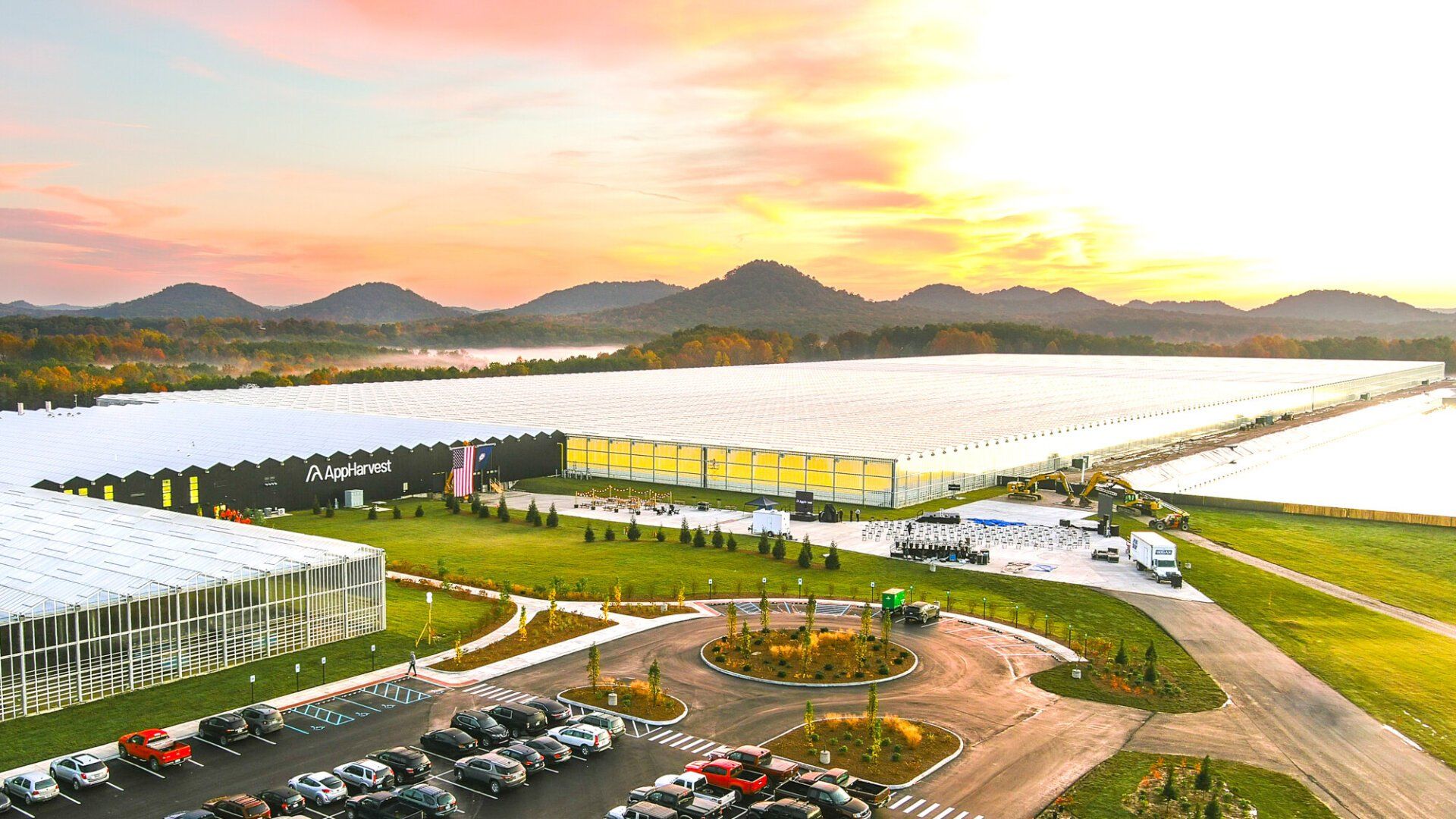
AppHarvest completed facility in Morehead, KY
AppHarvest’s greenhouses use 90% less water through high-tech distribution systems that other farming methods simply aren’t able to implement. They also implemented a lighting system that uses 40% less energy than typical lighting systems. Even though they use only a fraction of the water and lighting energy, AppHarvest’s commitment to sustainable practices led them to dig a rainwater retention pond to prevent toxic algae blooms in Kentucky’s natural waterways. Further, because of the greenhouses, there is no need to use pesticides which would ultimately absorb into the produce. And you might think that these sustainability practices come with a cost of decreased production, but they don’t. AppHarvest will be able to produce 30 times more food on their Morehead, KY farm than traditional farming methods. Because they are able to eliminate weather and seasonal constraints, they can produce crops 365 days a year.
So, what about American farmers whose livelihoods may be put at risk by a switch to sustainable greenhouse agriculture? As Geof points out, AppHarvest’s competition is not the typical American farmer. Instead, their competition is international imports of fresh produce. Currently, American consumers rely on international importation for its fresh produce bought in grocery stores, while typical American farmers sell their yield to restaurants. So instead of putting typical American farmers out of commission, the company will actually be seeking to reduce American consumers' reliance on other countries by replacing some of that reliance back on other Americans.
Still not convinced that this innovative company is onto something big? Well, consider how much time it takes for a tomato to get from Mexico to you – at least a couple of days, if not a week. AppHarvest’s greenhouse farms in Appalachia, KY are within a day’s drive of 70% of the American Population. That means your tomato will be a day old instead of a week old when it hits your local grocery store, and it will have taken 80% less diesel fuel to get it to you. Imagine being able to walk into a grocery store to for ripe produce that was picked off the plant the day before. It would be like having a local farmer’s market inside of your grocery store.
All of the benefits of this agricultural innovation are only possible, however, if the consumers get behind buying produce grown by these sustainable practices. AppHarvest recognizes this hurdle, so they are attempting to build awareness of the impending food and climate crises in a new way. Instead of having scientists, who people may be reluctant to listen to, explain the urgency for change that is needed, Geof is attempting to team up with high-profile people like NBA stars or pop culture icons to begin to push the need for sustainable food production. He hopes that by the people who Americans enjoy listening to spreading the word, sustainable American agriculture truly can be the way of tomorrow’s future.
For more information on AppHarvest listen to Middle Tech’s interview of Geof Rochester at the following link or listen below: Middle Tech Website
